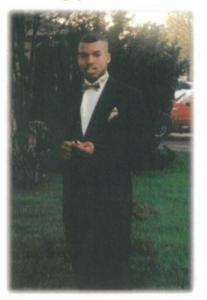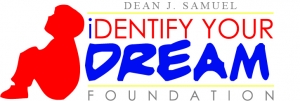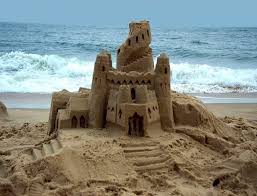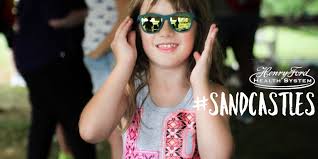 When I was 17 years old, my family and I had traveled to Tuscaloosa, Alabama for the 4th of July celebration with my extended family. We were getting situated in the hotel room and my dad told me call my brother back in Michigan, who was unable to come with us due to his work schedule. I remember calling and not receiving an answer, so I assume he was sleep because he worked an early shift. Unfortunately, I would never be able to reach him again, that night my brother, who was 22 years old, was murdered while hanging out with friends. The telephone rang at 5am the morning of the 4th of July, and my dad answered the phone, I could literally see his heart stop at the news. He really didn’t have to say much, I interpreted his facial expression immediately. The next 15 minutes were pure agony and my dad felt hopeless, as all three of his daughters screamed and cried, unable to comfort the pain we all felt. But then it was silence……. awkward silence. The 12-hour ride home was extremely uncomfortable. We went through this grief process together as a family but also isolated. We talked about the funeral arrangements, we wrote out his obituary, we even agreed on what he would wear, but we never talked about how the death of my brother impacted each of us. It was a hard conversation that my family chose to avoid. But as we grew older those unresolved issues and the unaddressed matter resulted in mental and emotional breakdowns in other areas of our life.
When I was 17 years old, my family and I had traveled to Tuscaloosa, Alabama for the 4th of July celebration with my extended family. We were getting situated in the hotel room and my dad told me call my brother back in Michigan, who was unable to come with us due to his work schedule. I remember calling and not receiving an answer, so I assume he was sleep because he worked an early shift. Unfortunately, I would never be able to reach him again, that night my brother, who was 22 years old, was murdered while hanging out with friends. The telephone rang at 5am the morning of the 4th of July, and my dad answered the phone, I could literally see his heart stop at the news. He really didn’t have to say much, I interpreted his facial expression immediately. The next 15 minutes were pure agony and my dad felt hopeless, as all three of his daughters screamed and cried, unable to comfort the pain we all felt. But then it was silence……. awkward silence. The 12-hour ride home was extremely uncomfortable. We went through this grief process together as a family but also isolated. We talked about the funeral arrangements, we wrote out his obituary, we even agreed on what he would wear, but we never talked about how the death of my brother impacted each of us. It was a hard conversation that my family chose to avoid. But as we grew older those unresolved issues and the unaddressed matter resulted in mental and emotional breakdowns in other areas of our life.
 Then my brother’s girlfriend gave birth to my nephew 6 months later. This baby would never know his dad, but what was even more difficult was the fact that we rarely mentioned my brother’s name, how will this child ever learn about what type of man his dad was. This weighed very heavy on me and in my attempt to talk to my nephew about his dad, as well as to honor my brother, I founded the Dean J. Samuel’s Identify Your Dream (IDYD) Foundation, where we offer grief support to children who lost their parents to violence. In my research of other grief support programs, I came across SandCastles. I did my research on the program and I wished that my family would have taken advantage of a program where we could have expressed our grief in a safe place with others with similar losses.
Then my brother’s girlfriend gave birth to my nephew 6 months later. This baby would never know his dad, but what was even more difficult was the fact that we rarely mentioned my brother’s name, how will this child ever learn about what type of man his dad was. This weighed very heavy on me and in my attempt to talk to my nephew about his dad, as well as to honor my brother, I founded the Dean J. Samuel’s Identify Your Dream (IDYD) Foundation, where we offer grief support to children who lost their parents to violence. In my research of other grief support programs, I came across SandCastles. I did my research on the program and I wished that my family would have taken advantage of a program where we could have expressed our grief in a safe place with others with similar losses.
 Unfortunately, we face difficult losses every day, tomorrow isn’t promised to anyone, but isn’t it amazing to know it’s ok to cry, it’s ok to grieve, and it’s ok to join a community of individuals learning how to build a new sand castle on the same shore where the ocean’s waves destroyed their first one. I’m so happy to work with SandCastles for my impact project, and I’m excited about the synergistic relationship between them and IDYD.
Unfortunately, we face difficult losses every day, tomorrow isn’t promised to anyone, but isn’t it amazing to know it’s ok to cry, it’s ok to grieve, and it’s ok to join a community of individuals learning how to build a new sand castle on the same shore where the ocean’s waves destroyed their first one. I’m so happy to work with SandCastles for my impact project, and I’m excited about the synergistic relationship between them and IDYD.

